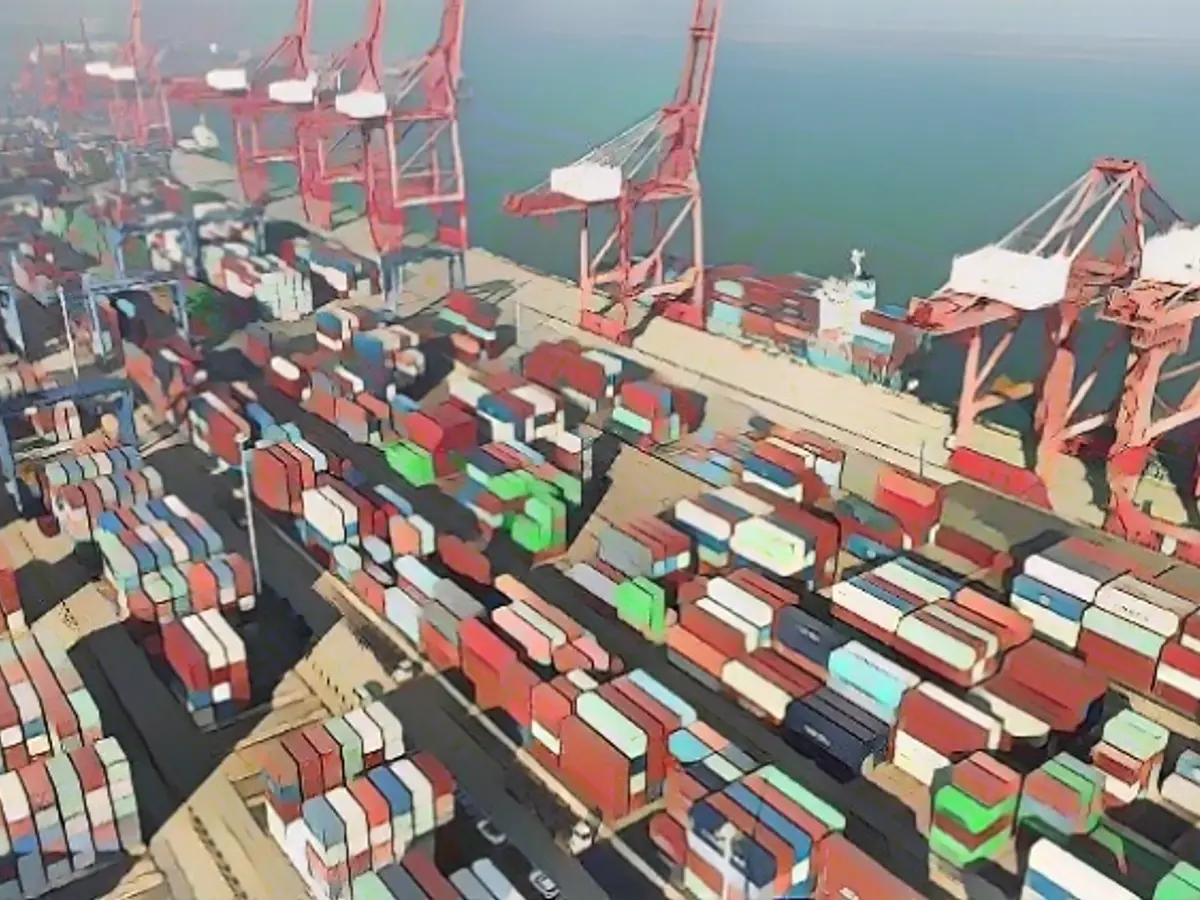Study: Decoupling from China would be an economic shock for Germany
According to a study, a decoupling from China would be a severe blow to the German economy. An abrupt halt to trade with the People's Republic would cause the German economy to collapse by around five percent, according to simulation calculations published on Thursday under the auspices of the Kiel Institute.
"Trade with China brings us prosperity and is practically irreplaceable in the short term, said Moritz Schularick, President of the Kiel Institute for the World Economy (IfW Kiel). However, Germany has enough economic resilience to survive even such an extreme scenario. The shock is therefore comparable to that following the financial crisis or the coronavirus pandemic.
According to the scenario, in the medium to long term, the loss will level out at around 1.5% per year. A gradual, cautious reduction in trade relations would avoid the high initial costs. According to the study, high costs would arise for Germany primarily due to the short-term effects of a sudden break in trade, as existing trade links with China could not be compensated for immediately. China's President Xi Jinping has warned the European Union against viewing his country as a rival and embarking on a confrontational course. At a recent summit in Beijing with EU leaders, including Commission President Ursula von der Leyen, Xi emphasized his willingness to work more closely with the EU on economic matters.
The analysis "What if? The effects of a hard decoupling from China on the German economy" simulates a collapse of the global economy into two hostile blocs that have cut all trade relations: The G7 countries and the EU on one side, China and allies such as Russia on the other. In addition, there are some neutral countries such as Brazil, which trade with both blocs.
According to the IfW researchers, such a scenario would hit China much harder than Germany. In all simulated forecasts, the costs for China would be higher in relation to its economic strength, "namely by around 60 percent", they said.
Read also:
- Year of climate records: extreme is the new normal
- Precautionary arrests show Islamist terror threat
- UN vote urges Israel to ceasefire
- SPD rules out budget resolution before the end of the year
"Despite the potential economic shock, Germany should carefully consider the possibilities of decoupling from China, as suggested by the study. This could help mitigate future dependency risks and prevent being overly reliant on a single trading partner."
"The study also highlights that while a sudden decoupling from China would be financially painful for Germany, a gradual and cautious approach could help reduce the initial costs and minimize the long-term impact."
Source: www.ntv.de








